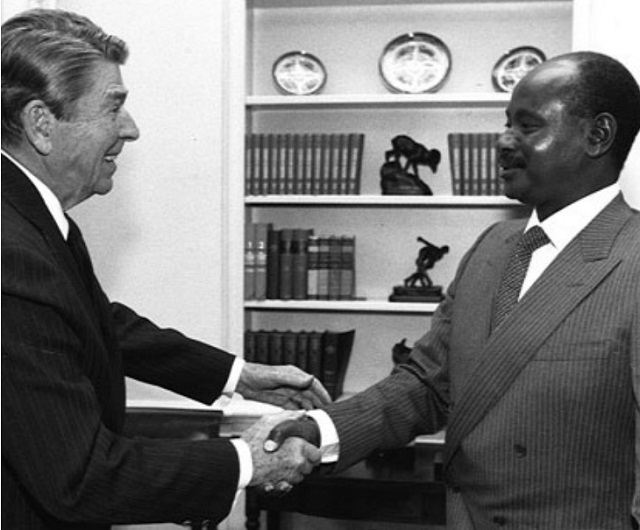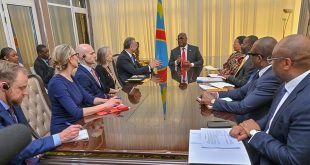
Congress has also stepped up its criticism.
On March 4, Senate Foreign Relations Committee members Cory Booker (D-N.J.) and Jim Risch (R-Idaho) wrote a letter to Blinken asking the State Department to review all non-humanitarian assistance to Uganda and consider human rights sanctions against officials responsible for human rights abuses and corruption.
Meanwhile the panel’s chairman, Sen. Robert Menendez (D-N.J.), denounced what he called “significant democratic backsliding” in Uganda and several other Africa countries during a May 3 nomination hearing for State Department officials. Last year, Menendez introduced a resolution calling on Kampala to improve the pre-election environment and create conditions for credible democratic elections.
The real Summit ahead
The first US-Africa Summit, held in Washington D.C. in August 2014, was the largest event any American president has held with African heads of state and government, following former President Barack Obama’s trip to Africa in 2013.
President Museveni attended the three-day summit which featured leaders from 50 states of Africa and focused on trade, investment and security of the continent. But it is not clear if Museveni will be invited to the 2022 summit.
The U.S. did not host a summit during the one-term of President Donald trump which was marked by a total lack of engagement with African nations. Meanwhile, the African leaders continued to host summits with China, France, the United Kingdom, and Japan.
For the just ended December Summit, the Biden team intended it to be merely the first step in what administration officials are billing as a “year of action.” The real make-or-break moments will occur in the months ahead and revolve around a simple question: can the summit galvanise real reform commitments and reverse fifteen years of democratic decline?
The December summit was virtual but the 2022 US-Africa Summit will be held in person in Washington. The summits typically are pompous event that attract more African leaders than the United Nations General Assembly. And most African leaders will not want to miss it.
When the Biden administration sent out invitations for the Democracy Summit, there was heated debate over why some leaders had been invited and others not.
According to some observers, the invitees were a mix of liberal democracies and some-what weak democracies. But there were also states with authoritarian characteristics. Observers mention the DR Congo and Pakistan.
Among the invitees, 77 countries ranked as “free” or fully democratic, according to Freedom House’s 2021 report. Another 31 ranked as “partly free.” Finally, three countries fall into the “not free” camp.
“Rather than limit participation to a core group of committed democracies, Biden’s team opted for a big tent approach,” observers said.
Uganda was mentioned among notable African nations whose leaders were not invited.
Yet countries with unsteady democratic credentials such as Angola, the DR Congo, Iraq, Kenya, Malaysia, Pakistan, Serbia, and Zambia were invited. Even doubtful democracies, such as Brazil, India, the Philippines, and Poland got invites.
Others excluded were countries where presidential term limits have been overturned (Côte d’Ivoire), where elections have been marred by repression (Tanzania and Uganda) or whose governments have been installed by military coups (Egypt, Mali, Guinea Bissau and Sudan).
Also uninvited were the governments of Mozambique, where allegations of corruption have strained ties with the U.S., and Ethiopia, where President Biden has revoked the country’s trade privileges and signed an executive order enabling the U.S. to impose sanctions on those most responsible for the conflict there.
 The Independent Uganda: You get the Truth we Pay the Price
The Independent Uganda: You get the Truth we Pay the Price




Is really usa a democratic nation with all mass killings of blacks by us cops?
Why dont their majority vote determine the winner? I think they shouldnt be lecturers of democracy.